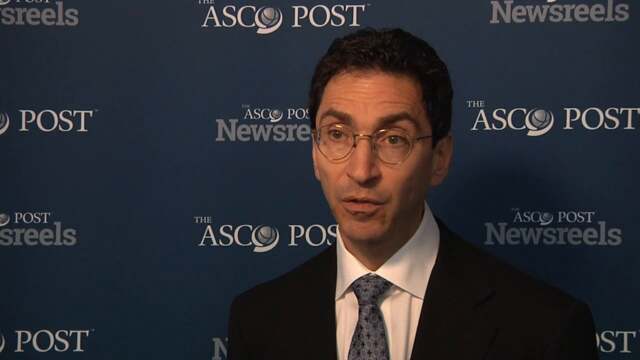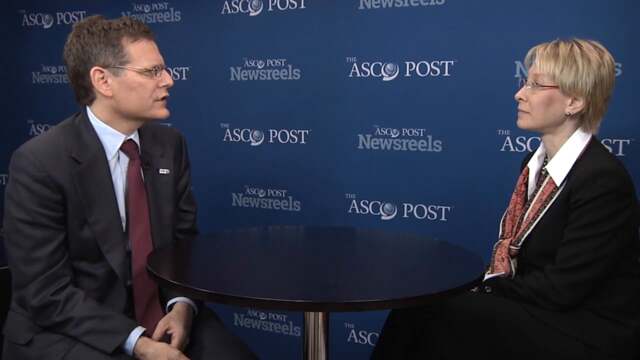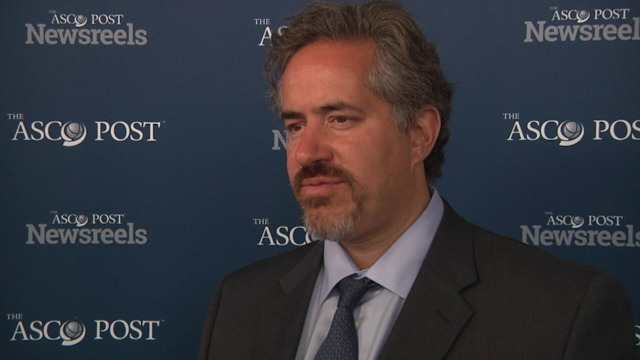Claus Garbe, MD, and Anthony J. Olszanski, RPh, MD, on The DECOG Trial on Sentinel Lymph Node–Positive Melanoma
2015 ASCO Annual Meeting
Claus Garbe, MD, of the University of Tuebingen, and Anthony J. Olszanski, RPh, MD, of Fox Chase Cancer Center, discuss the survival of sentinel lymph node-positive melanoma patients with and without complete lymph node dissection (Abstract LBA9002).
Nicholas C. Turner, MD, PhD, and Clifford A. Hudis, MD
Clifford A. Hudis, MD, of Memorial Sloan Kettering Cancer Center, and Nicholas C. Turner, MD, PhD, of the Royal Marsden Hospital NHS Trust, discuss fulvestrant and palbociclib as a treatment option in pre- and postmenopausal women with hormone receptor–positive, HER2-negative metastatic breast cancer that has progressed on prior endocrine therapy (Abstract LBA502).
Leonard Saltz, MD
Leonard Saltz, MD, of Memorial Sloan Kettering Cancer Center, discusses how the cost of care affects behavior and decision-making on the part of patients and oncologists.
Maura N. Dickler, MD and Clifford A. Hudis, MD
Clifford A. Hudis, MD, and Maura N. Dickler, MD, of Memorial Sloan Kettering Cancer Center, discuss adding bevacizumab to letrozole as a first-line endocrine therapy for treatment of hormone receptor–positive advanced breast cancer (Abstract 501).
Andrew Zelenetz, MD, PhD
Andrew Zelenetz, MD, PhD, of Memorial Sloan Kettering Cancer Center, discusses two important lymphoma trials presented at ASCO and his views on whether their results are indeed practice-changing (Abstract 8504 and LBA8502).
Ruben A. Mesa, MD
Ruben A. Mesa, MD, of the Mayo Clinic, discusses pacritinib and its significant efficacy in myelofibrosis (Abstract LBA7006).





